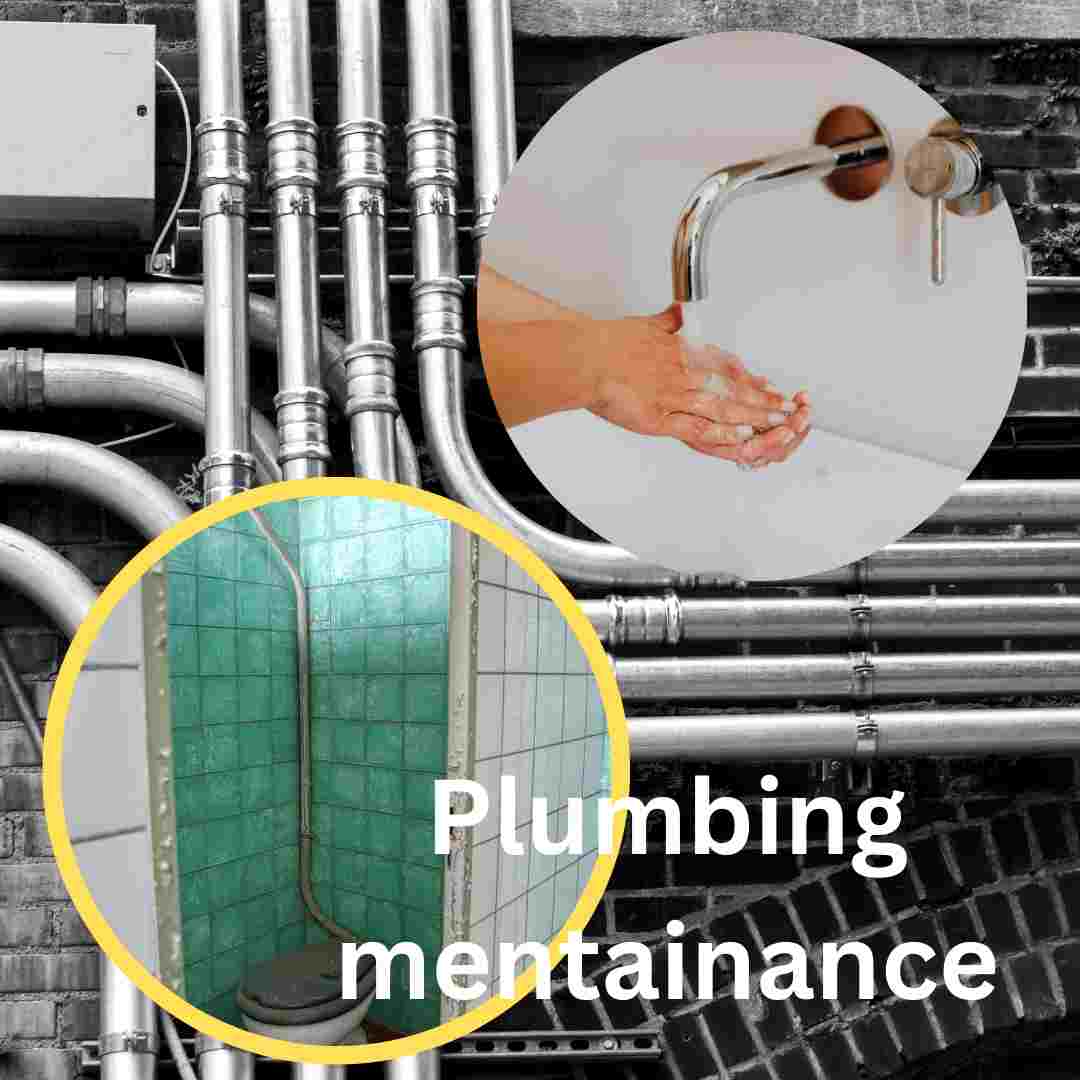Table of Contents
In the USA, homeowners must maintain their home septic tank. Waste is treated effectively when your septic system is operating properly, safeguarding your house and the environment.
Home septic tanks that are not properly maintained can cause expensive repairs, foul smells, and even pollution of the surrounding area.
Neglecting septic tank maintenance can lead to dangerous and costly repairs like backups, leaks, and pollution of nearby water sources.
Let’s explore with some easy-to-implement advice on how to keep your home septic tank in good working order.
You may prevent unexpected problems and maintain the proper operation of your septic system by keeping to these instructions.
How to Properly Maintain Your Home Septic Tank?
Understand How a Home Septic Tank Works
1. Basic Components of a Septic System
The soil, drain field, and septic tank are the 3 primary components of a septic system. The home septic tank is a major, underground, waterproof container.
It collects and separates the wastewater from your house into multiple stages.
The home septic tank wastewater is discharged onto the ground in the drain field, a small, covered space.
Water is naturally filtered by the soil as it flows through it.
2. The Septic Tank Process
Wastewater naturally divides into three layers when it enters the home septic tank. Sludge is the layer that forms at the bottom when the solids settle.
The liquids flow out to the drain field while remaining in the center. A layer of scum, consisting of grease and oils, develops at the top.
Some of the particles are broken down by bacteria in the tank, but the balance must be pumped out on a regular basis.
3. Signs of a Failing Septic System
Major problems may arise from a failed septic system.
Slow draining sinks or toilets, unpleasant smells coming from your house, and water gathering in your yard, particularly close to the drain field, are some common indicators to keep an eye out for.
It may be time to have a professional septic system inspection if you observe any of these problems.
Read: How to Properly Ventilate Your Home to Prevent Moisture Buildup?
Regular Pumping and Inspection
1. Importance of Regular Pumping
- Maintaining the correct operation of your home septic tank requires routine pumping.
- Solids develop in the tank over time and create a thick coating of sludge that bacteria are unable to break down.
- This dirt can overflow into the drain field and cause clogs and system failure if it is not cleared.
- It is advised that septic tanks be pumped every 3 to 5 years for the majority of American households.
- The number of people living in your home and the size of your tank will determine how this schedule changes.
2. Scheduling Inspections
- To keep your septic system in good working order, regular professional inspections are just as necessary as pumping.
- A technician will check the amount of sludge and algae in the tank, search for any leaks, and make sure the drain field is operating correctly during an inspection.
- By identifying possible issues early, these checks can help you avoid having to pay for expensive repairs later on.
3. Costs Associated with Pumping and Inspections
- Depending on where you live in the USA, the cost of pumping and inspecting home septic tank can vary, but usually, pumping will cost you between $200 and $600.
- The average cost of an inspection is between $100 and $300.
- Regular maintenance helps avoid deeper issues that could cost thousands of dollars to fix, even though it might seem like an additional expense.
- Over time, keeping up with inspections and pumping is a wise investment for any house.
Best Practices for Daily Use
1. What to Avoid Flushing?
Being careful about what you flush down the toilet or pour down the drain is one of the simplest methods to keep your septic system in good working order.
Paper towels, grease, oils, chemicals, wipes (even those labeled as flushable), and feminine hygiene products are among the things that should never be flushed.
These products have the potential to block your septic system and require expensive repairs.
To maintain the health of home septic tank, instead, throw them in the trash.
2. Water Conservation Tips
Water conservation is important in keeping your septic system functioning properly.
Overusing the water supply may overload the system and interfere with the septic tank’s ability to effectively separate solids from liquids. Untreated wastewater could get into your drain field as a result of this.
Try installing low-flow showerheads and toilets, replacing leaking faucets as soon as possible, and distributing laundry loads over the week to save water.
You are not just saving the environment but also increasing the life of your septic system by using less water.
3. Safe Cleaning Products
Selecting cleaning products for your house that will not harm your septic system is necessary.
The good bacteria in your septic tank that help in the breakdown of waste can be killed by strong chemicals like bleach and ammonia.
Rather, choose biodegradable, septic-safe cleaning solutions that do not have any hazardous chemicals.
Septic-friendly cleaning solutions and detergents are available from several US brands, including Mrs. Meyer’s and Seventh Generation.
You can make sure that your septic system continues to function well and be ecologically friendly by using these products.
Read: Water Damage Prevention and Maintenance Tips for USA Homes
Protecting Your Drain Field
1. Landscaping Tips
- An important component of home septic tank is your septic drain field, and the way you landscape around it can have a significant impact on how well it functions.
- Select plants with shallow roots so they do not block the pipes below when planting close to the drain field.
- The best options are small, non-woody plants, wildflowers, and grasses.
- Stay away from planting shrubs or trees with strong root systems, like maples or willows, as these could get inside and harm the drain field pipes.
2. Avoiding Heavy Traffic
- It is necessary to keep heavy machinery, cars, and even big animals away from your drain field.
- These heavy objects have the potential to compact the soil, decreasing its capacity to absorb and process wastewater.
- In serious cases, it may crush the pipes, necessitating costly repairs.
- Make barriers or signs reminding people not to drive or park on your land to safeguard your drain field.
3. Managing Surface Water
- One way to avoid home septic tank issues is to manage surface water around your property properly.
- Rainstorms, driveways, and roof runoff should all channel excess water away from your drain field.
- This can be done by building drainage swales that safely channel water away or by constructing gutters and downspouts that redirect water away from the drain field.
- You can help the soil properly absorb and treat wastewater from your septic system by keeping excess water off your drain field.
Address Common Home Septic Tank Issues
1. Clogs and Backups
Septic system backups and clogs can be inconvenient, but they can also be a sign of a more serious issue.
You may have a small blockage if you observe slow drains or water backing up in your sinks or toilets.
You might try using a plumbing snake or a plunger to clear it. Yet, since chemical drain cleaners might damage your septic system, stay away from using them.
In case these fixes are ineffective or if you frequently encounter backups, it is advisable to have a professional evaluate your system and fix any problems before they get worse.
2. Drain Field Failure
A malfunctioning drain field is a dangerous problem that can cause waste to spill onto your yard or possibly damage neighboring water supplies.
Slow drains, sewage smells, and water pooling in the area above the drain field are early indicators of drain field failure.
Make sure you perform routine septic tank maintenance, including frequent pumping and avoiding overflowing the system with water, to avoid this.
If you think your drain field is failing, get in touch with a septic expert right away so they can examine the problem and suggest solutions.
3. Home Septic Tank Odors
Odors coming from your drain field or septic tank are an obvious indication that something is wrong.
A clog in the system, insufficient airflow, or a full tank that needs to be pumped are a few possible causes of these odors.
Make sure your tank is pumped on a regular basis and refrain from flushing anything that can clog the system to control odors.
If smells continue, make sure your roof’s vent pipes are clear of barriers so that gases can safely escape.
To avoid more problems, persistent scents have to be dealt with by a professional.
Read: Home Maintenance Apps and Tools to Simplify Your Life in the USA
Legal and Environmental Considerations in the USA
1. Local Regulations
- In the United States of America, septic system laws vary greatly between states and even local towns.
- The installation, repair, and repair of sewage systems are subject to these rules. For new septic installations, homeowners frequently need to get permits.
- They may also be subject to regular inspections.
- Certain states have regulations mandating how often a septic tank needs to be empty and the minimum distance a septic system can be from property borders, wells, and bodies of water.
- To maintain compliance and prevent fines, you must get familiar with the rules that apply in your area.
2. Environmental Impact
- Maintaining your septic system properly is necessary for preserving the environment in addition to protecting your property.
- It is possible to stop pollutants like phosphates, nitrates, and bacteria from seeping into the groundwater and soil by keeping your septic system in good working order.
- Such pollutants have the potential to damage nearby ecosystems and taint sources of drinking water.
- You are improving the environment in the United States and the health of your neighborhood by maintaining the reliability of your septic system.
3. Government and Utility Rebates
- Governmental organizations and utility corporations in certain US states provide refunds or other forms of financial help to homeowners as an incentive to properly maintain their septic systems.
- The costs of routine pumps, inspections, or even renovations to more energy-efficient systems may be partially covered by these programs.
- It is a good idea to find out if there are any discounts or assistance programs offered in your area by contacting your local power company or health agency.
- By taking advantage of these plans, you can guarantee that your system stays in top form while keeping home septic tank maintenance more reasonably priced.
Bottom Line
To stay ahead of possible problems, schedule your nexthome septic tank cleaning or inspection before they happen.
Keep in mind that making regular maintenance investments now might prevent more costly repairs and hassles down the road.











